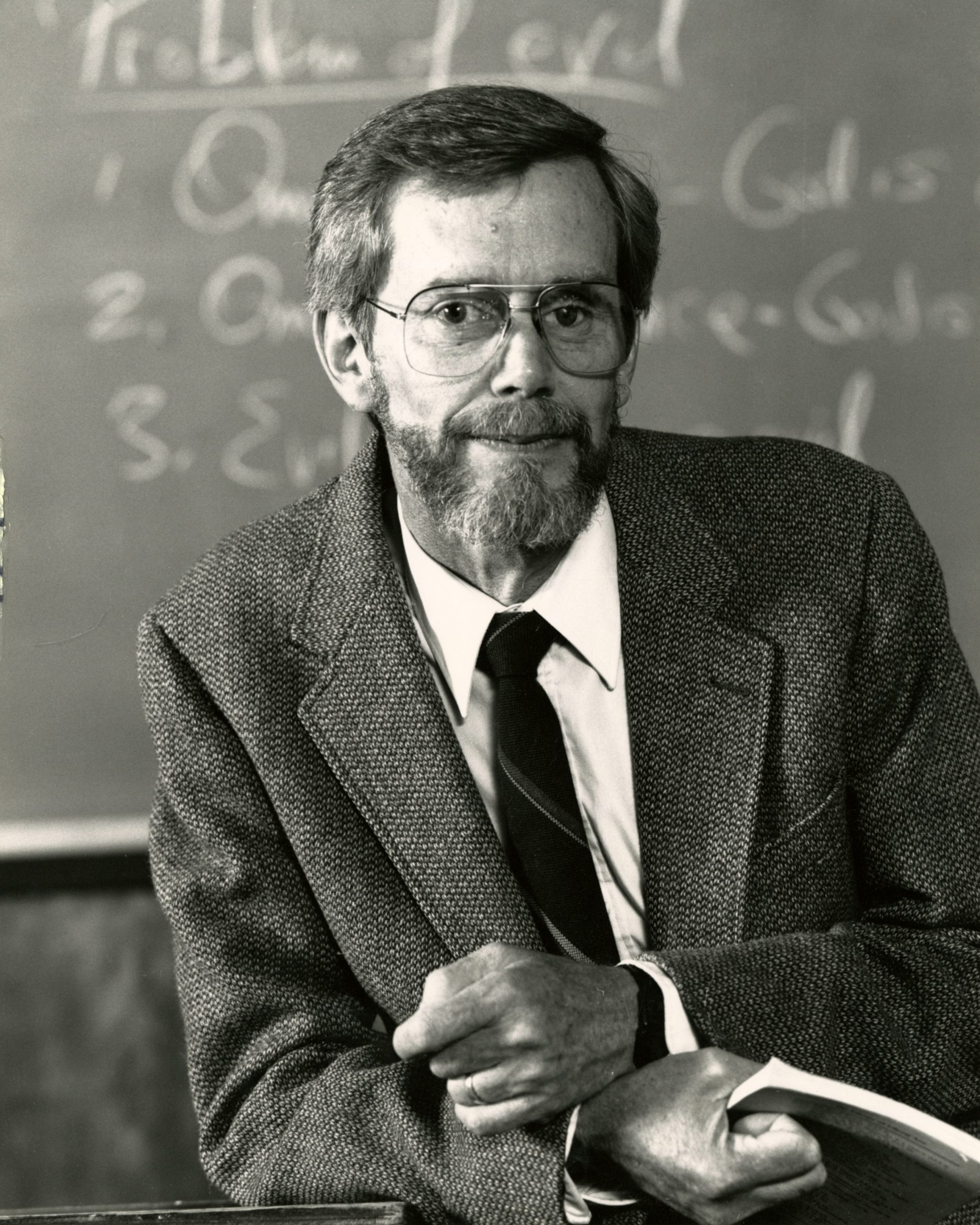The Edgar M. Carlson Award for Distinguished Teaching was established at Gustavus Adolphus College in 1971. In granting this award annually at graduation, we, together as students, alumni, faculty and administrators, celebrate the goal of this college in expanding and enhancing our intellectual abilities, and we celebrate the essential influence of distinguished teaching in achieving this goal. For teaching, when it is stimulating, opens up to us in a short span of the classroom hours the deeds, events and ideas that have un folded during long epochs of time. Teaching, when it is imaginative, makes us spectators to times long past, makes us participants in the academic and moral ventures of the present age, and makes us progenitors of futures not yet named. Teaching, when it is insightful, makes us companions to the intellectual and creative greatness that overwhelms our individual limitations and to the mistakes and failures that defy our under standing. Teaching, when it is rigorous, tutors us so that we might learn to govern our thoughts, to restrain our mental impatience, to foster our talents, and to realize our dreams. Such teaching was recognized as vital to this college by Edgar M. Carlson, the former president of Gustavus for whom this award is named. Such teaching is practiced at this college by Professor William Dean.
The word rigor can be used to describe Bill Dean and his teaching. Rigor characterizes Bill Dean’s academic training. Bill Dean received his BA from Carleton College and his MA and PhD from the University of Chicago. Since 1968, Bill Dean has been a professor of religion at Gustavus. In his scholarship, which includes five books and eighteen articles, Bill Dean has been rigorous. In the classroom Bill Dean’s students share that rigor. One student writes that William Dean “demands that his students recognize that he is someone who works hard at his job and expects the same of his students.” Another notes that Bill Dean “shares his writings with the class so as to include students in his outside endeavors.”
Stimulating is a second adjective that can be used to describe Bill Dean and his teaching. Bill Dean has published on topics such as Coming To: A Theology of Beauty and Love Before the Fall. These titles suggest the stimulating questions which Bill Dean asks of theology. The stimulating quality of Bill Dean’s mind in fuses his teaching. Students comment that Bill Dean “promotes individual thought and the development of ideas,” that he “invites questions” and that he “encourages students to think on their own.”
Imaginative is a third term that can be used to describe Bill Dean and his teaching. Bill Dean’s imagination surfaces in papers published in scholarly journals. These papers invite imaginative discourse on the part of their audiences with titles such as “I Alone Understand,” “Fireflies in a Quagmire” and “An International Mortality Lottery.” Bill Dean’s imagination permeates the classroom. Students report that Bill Dean’s teaching methods extend beyond traditional lectures. They include visual methods of teaching, discussion sessions, debates, and even games which are intended to make intellectual points clear in unexpected ways.
Finally, insightful is an appropriate word to describe Bill Dean and his teaching. This insight is recognized by other theologians who have appointed him to serve on the National Executive Advisory Committee for the Project on Religion and American Culture at Indiana University and on the Editorial Board of the American Journal of Theology and Philosophy. This insight is applauded by students who report that Bill Dean “uses material applicable beyond the classroom,” that he “integrates information and ideas with the real world” and that he challenges students to find the connections between religion and other disciplines such as athletics, biology, psychology and political science.
Bill, you have defined your academic colleagues at Gustavus to include students, alumni, faculty and administrators, and your multifaceted teaching has challenged all of us to increase our intellectual awareness and to realize fully our capacities of belief, inquiry and thought. Therefore, Bill, I am privileged to present to you the Edgar M. Carlson Award for Distinguished Teaching for 1990.
Presented by Linnea Wren
Associate Professor of Art
1989 Recipient of the Edgar M. Carlson Award

Leave a Reply
You must be logged in to post a comment.